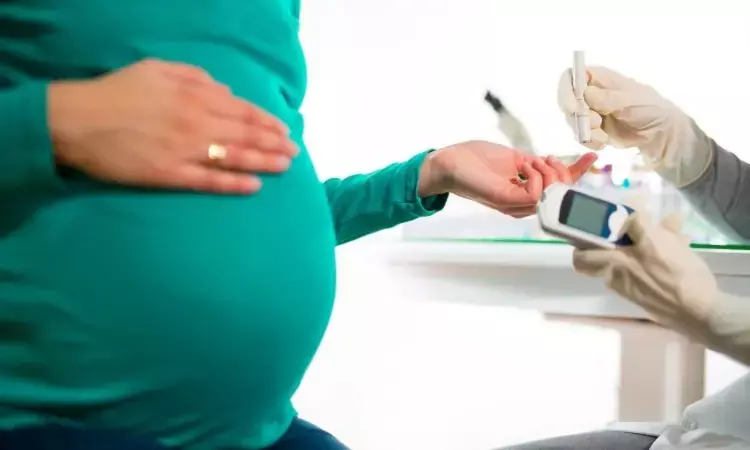- Home
- Medical news & Guidelines
- Anesthesiology
- Cardiology and CTVS
- Critical Care
- Dentistry
- Dermatology
- Diabetes and Endocrinology
- ENT
- Gastroenterology
- Medicine
- Nephrology
- Neurology
- Obstretics-Gynaecology
- Oncology
- Ophthalmology
- Orthopaedics
- Pediatrics-Neonatology
- Psychiatry
- Pulmonology
- Radiology
- Surgery
- Urology
- Laboratory Medicine
- Diet
- Nursing
- Paramedical
- Physiotherapy
- Health news
- Fact Check
- Bone Health Fact Check
- Brain Health Fact Check
- Cancer Related Fact Check
- Child Care Fact Check
- Dental and oral health fact check
- Diabetes and metabolic health fact check
- Diet and Nutrition Fact Check
- Eye and ENT Care Fact Check
- Fitness fact check
- Gut health fact check
- Heart health fact check
- Kidney health fact check
- Medical education fact check
- Men's health fact check
- Respiratory fact check
- Skin and hair care fact check
- Vaccine and Immunization fact check
- Women's health fact check
- AYUSH
- State News
- Andaman and Nicobar Islands
- Andhra Pradesh
- Arunachal Pradesh
- Assam
- Bihar
- Chandigarh
- Chattisgarh
- Dadra and Nagar Haveli
- Daman and Diu
- Delhi
- Goa
- Gujarat
- Haryana
- Himachal Pradesh
- Jammu & Kashmir
- Jharkhand
- Karnataka
- Kerala
- Ladakh
- Lakshadweep
- Madhya Pradesh
- Maharashtra
- Manipur
- Meghalaya
- Mizoram
- Nagaland
- Odisha
- Puducherry
- Punjab
- Rajasthan
- Sikkim
- Tamil Nadu
- Telangana
- Tripura
- Uttar Pradesh
- Uttrakhand
- West Bengal
- Medical Education
- Industry
Gestational glucose intolerance tied to risk of future diabetes, study reveals

USA: A recent study published in Diabetes Care has identified gestational glucose intolerance (GGI) as a risk factor for future diabetes. Gestational glucose intolerance is an abnormal initial gestational diabetes mellitus (GDM) screening test without a GDM diagnosis.
Pregnant women are universally screened for gestational diabetes. Gestational glucose intolerance is not a recognized risk factor for diabetes. Daryl J. Selen, Diabetes Unit, Massachusetts General Hospital, Boston, MA, and colleagues investigated an association between GGI and diabetes after pregnancy.
To address the question, "Is gestational glucose intolerance a risk factor for future diabetes? The researchers' team conducted a retrospective cohort study of individuals followed for prenatal and primary care. GGI is an abnormal screening glucose-loading test result at more than 24 weeks gestation with an OGTT (oral glucose tolerance test) that did not meet the criteria for gestational diabetes. Incident diabetes was the study's primary outcome. To compare the risk of incident diabetes in patients with GGI and normal glucose tolerance, they used Cox proportional hazards models with time-varying exposures and covariates.
From 16,836 individuals, there were 2,943 pregnancies with Gestational glucose intolerance, 20,359 with normal glucose tolerance, and 909 with gestational diabetes.
The study led to the following findings:
- After a median of 8.4 years of follow-up, 428 people developed diabetes.
- People with gestational glucose intolerance had increased diabetes risk compared to those with normal glucose tolerance in pregnancy (adjusted hazard ratio [aHR] 2.01).
- Diabetes risk increased with the number of abnormal OGTT values (zero, aHR 1.54; one, aHR 2.97; GDM, aHR 8.26 for each compared with normal glucose tolerance).
- The fraction of cases of diabetes ten years after delivery attributable to GGI and GDM was 8.5% and 28.1%, respectively.
"Gestational glucose intolerance confers an increased risk of future diabetes," the authors wrote. "Routinely available clinical data identify an unrecognized group in which enhanced diabetes screening and prevention may be beneficial."
Reference:
Daryl J. Selen, Tanayott Thaweethai, Carolin C.M. Schulte, Sarah Hsu, Wei He, Kaitlyn James, Anjali Kaimal, James B. Meigs, Camille E. Powe; Gestational Glucose Intolerance and Risk of Future Diabetes. Diabetes Care 2022; dc221390. https://doi.org/10.2337/dc22-1390
Dr Kamal Kant Kohli-MBBS, DTCD- a chest specialist with more than 30 years of practice and a flair for writing clinical articles, Dr Kamal Kant Kohli joined Medical Dialogues as a Chief Editor of Medical News. Besides writing articles, as an editor, he proofreads and verifies all the medical content published on Medical Dialogues including those coming from journals, studies,medical conferences,guidelines etc. Email: drkohli@medicaldialogues.in. Contact no. 011-43720751


